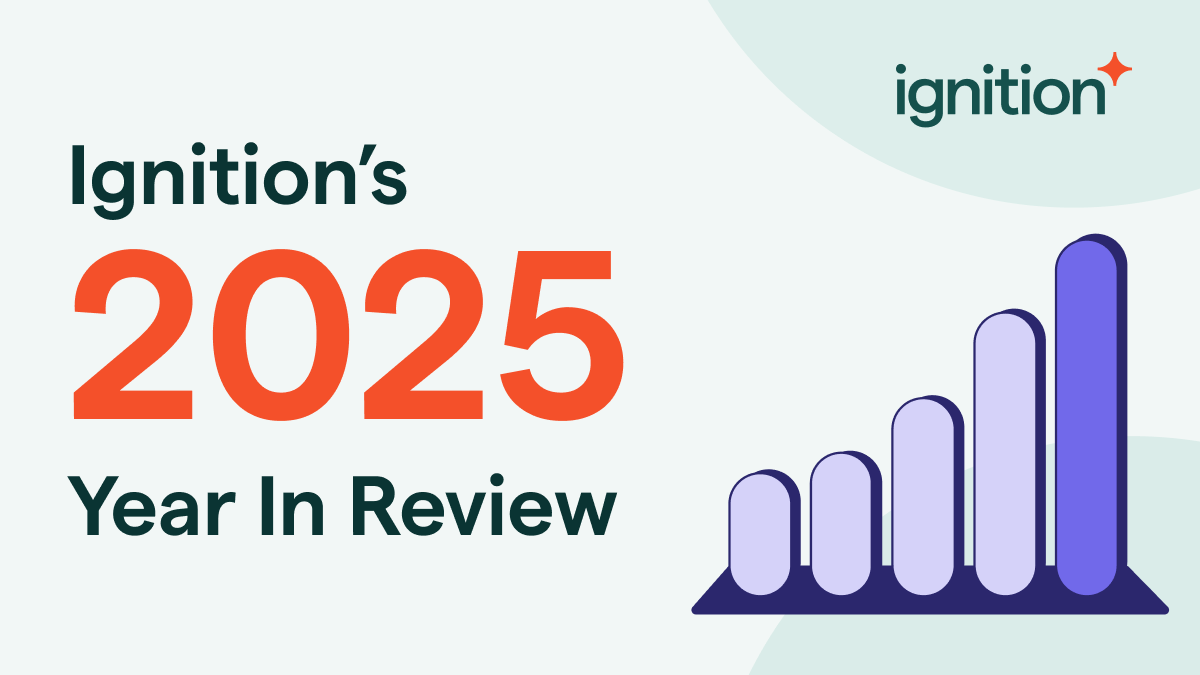What are advisory services offered by CPA firms?

Key takeaways:
- Advisory services encompass a wide range of financial and business services beyond basic accounting tasks, including financial planning, wealth management, tax strategy, business growth goals, and profitability best practices.
- Some of the most in demand advisory services by clients include tax planning, business modeling, budgeting, and KPI reporting.
- Offering advisory services can significantly increase a firm's revenue and allow for higher charges for services, with clients recognizing and willing to pay more for the added value.
- While advisory and consulting services have their similarities, one key difference is that advisory services typically involve long-term, ongoing relationships, while consulting services are generally more project-specific.
- Leveraging technology can streamline the process of offering advisory services by automating tasks like generating proposals and client billing.
Let’s face it: for Certified Public Accountant (CPAs) and accountants, the seasonal influx of business during tax season or busy season, as it’s commonly called, is a huge benefit that can actually keep lights on year-round.
That being said, while some of your clients may only surface annually to get their taxes done, there is a major opportunity for CPA firms to garner more consistent business by offering advisory services in addition to doing taxes and compliance work.
Providing advisory services to your clients positions your firm as a trusted partner and resource – while also ensuring a consistent stream of business.
Advisory services are a prime opportunity for business growth – and these services may also be low-hanging fruit for your CPA firm to offer. A recent Thompson Reuters Institute survey found that 95% of tax professionals believe their clients already want financial advisory services for their business.
Advisory services is a bit of a broad term and spans a gamut of financial advice. So, what exactly are accounting advisory services, and how can your CPA firm level up its offerings with advisory services? Let’s get into it.
What are accounting advisory services?
You know that being a CPA is so much more than doing taxes and helping your clients with their bookkeeping. Accounting advisory services encompass a broad territory of financial and business advice. For example, if you’re offering financial accounting advisory services, you’re likely helping your clients with guidance on their investing and wealth management, cash flow planning and forecasting, and more.
Outside of financial advisory services (but closely related and highly important), your firm can also help with client advisory services. For example, since your clients are not tax experts, advisory services for tax planning and strategy, and helping keep on top of tax legislation are huge value-adds to your clients as they grow and/or as tax law requirements change.
Since you already understand their business, offering advisory services to address their growth goals and best practices for profitability set up your client for success, while positioning your firm as a trusted business partner.
Advisory accounting salary: How much more can you earn with advisory services?
CPA firms that offer advisory services can truly be in a win-win situation. Not only is your expert advice and guidance helping your clients become more profitable, but your firm also brings in year-long revenue as a result.

An announcement from the American Institute of CPAs (AICPA) and CPA.com showcased that offering client advisory services (CAS) results in practices seeing 16% growth. They also said advisory services were “the fastest growing service area in public accounting and is projected to continue its impressive trajectory”.
Not only are your clients spending more at your firm, the increased value you offer means you can charge more for your expert services.
According to the Hinge Research Institute, “buyer participants not currently purchasing advisory services indicated they would expect to pay 50% more for an accounting package that includes both strategic advisory and consulting services, and are willing to pay more each month for packaged services.”
You may be wondering: What services are my clients looking for? This CPA.com report indicates the following advisory services are most desirable:
- Revenue growth and business modeling (65%).
- Budgeting (46%).
- Tax planning (38%).
- Risk management (38%).
- Key performance indicator (KPI) reporting (35%).
Understanding what your clients need for advisory services is key to determining which services you should prioritize in your offering. And then, of course, you’ll need to promote those services accordingly.
Advisory services examples
Since “advisory services” is quite an umbrella term, let’s break it into two camps: financial accounting advisory services and client advisory services.
What are financial accounting advisory services?
As mentioned above, CPA firms are well-positioned to guide client strategy on investing and wealth management, cash flow planning, forecasting and budgeting.
Financial accounting advisory also encompasses examining your client’s profitability, business entity structure, rental property operations, purchasing or selling businesses, shifts in income and relevant action planning, estate planning, and the like.
What are client advisory services?
Meanwhile, client advisory services take a slightly different lens. Helping clients understand an appropriate tax strategy and planning and offering guidance on relevant tax law is only part of the picture.
For example, many small businesses struggle in areas such as benchmarking against their peers and the accompanying analysis to understand what the benchmarks mean.
As a trusted resource that understands their business, your firm is in a good spot to offer advice on their business goals, strategic planning, and general best practices to sustain or grow their business. You can also help with setting and analyzing KPI performance to get your clients measurable information and metrics that matter.
Advisory versus consulting: What’s the difference?
Advisory services | Consulting services | |
| Term of engagement | Long-term basis. | Short-term basis, for a specific project. |
| Objective | Providing counseling and advice on a variety of challenges or business needs. | Addressing targeted client challenges or projects. |
| Relationship with client | Aimed at fostering long-term business partnerships. | Typically a one-time contract or short-term engagement. |
| Suitability | Well-suited for CPAs to foster deeper, lasting relationships with clients. | Suitable for firms with the expertise and staffing to address specific client projects. |
| When to offer | When the goal is to establish lasting client relationships and provide ongoing support. | When targeting specific client challenges or when project-based expertise is required. |
Do you want a one-time contract with a client or a long-term business partnership? That is, essentially, the difference between advisory and consulting services.
While both advisory and consulting services help your clients address their queries and challenges with expert advice, the difference is typically in the term of engagement. A financial or business advisor usually works with clients on a long-term basis, providing counseling and advice on a variety of challenges or other business needs. On the other hand, a consultant typically works on a more limited scope, for a shorter length of time and on a specific project basis.
Advisory versus consulting: Which is better for your firm to offer?
The benefits of offering advisory services make this a great way for CPA firms to gain longer-term, more predictable business. Financial and client advisory services are a great strategy to deepen client relationships and ensure you see them outside of tax season.
This isn’t to say consulting services are off the table or not beneficial to CPA firms. Depending on your firm’s expertise and staffing capabilities, offering consulting services to address targeted client challenges or projects can be an “and”, not an “or”.
However, if your goal is to foster deeper, lasting relationships with your clients, advisory services are the way to go and well-suited for the kind of work CPAs do and the services your clients need.
Hiring for accounting advisory jobs
Clients seeking advisory services are looking for a partner in their business who can work closely with them to understand their business and offer tailored guidance. In addition to regular meetings that go over essential topics such as revenues, P&L, and taxes, advisors must take a consultative and forward-thinking approach to help clients craft and implement the right business practices.
As such, when hiring or training your team for accounting advisory, see to it that they possess both technical expertise and the ability to think strategically. Needless to say, investing in a professional staff who can fluently address your client's challenges, concerns, and goals will lead to better client relationships.
Remember, the success of advisory services hinges on customer satisfaction and repeat (and referral!) business. When hiring someone to fill the CPA/advisor role, look for:
- Professionals with the required qualifications and certifications for their advisory role. For instance, with tax planning advisory, you might want someone who is an Enrolled Agent.
- Skilled accountants who understand the clientele you serve.
- People who love people – interpersonal relationships are key here.
- Individuals with sharp business acumen.
- Lifelong learners – they’ll need to acquire new skills as the business environment evolves, and you don’t want to hire someone with a fixed mindset.
Should my CPA firm offer accounting advisory services?
If you’ve made it this far, you likely see the benefits of offering business and/or accounting advisory services to your clients. After all, if the majority of tax professionals believe their clients also want advisory services, they’re probably on to something that’s worth looking into.
If you’re interested in offering advisory services, Ignition has got you covered. Launching advisory services is a breeze, thanks to Ignition’s built-in features that automate and digitize your proposals.. Quickly price and package advisory and compliance services in your proposals, so all clients have to do is select the right option for them.
Ignition also simplifies how you create engagement letters that clearly outline the terms of your agreement. Use our legally-vetted engagement letters or upload your own. From there, clients can easily sign them online, so the entire process is streamlined and you can start delivering value right away.
Ignition also empowers CPAs to get paid faster through robust client billing features that support various payment capabilities – including fixed fees, hourly rates, and recurring billing. So whether you’re selling advisory services as a subscription or as an hourly service, you can manage and automate billing to ensure timely payments.
Discover how Ignition can help you launch advisory services and uplevel your practice. Watch a demo of Ignition today.



